The End of Saba
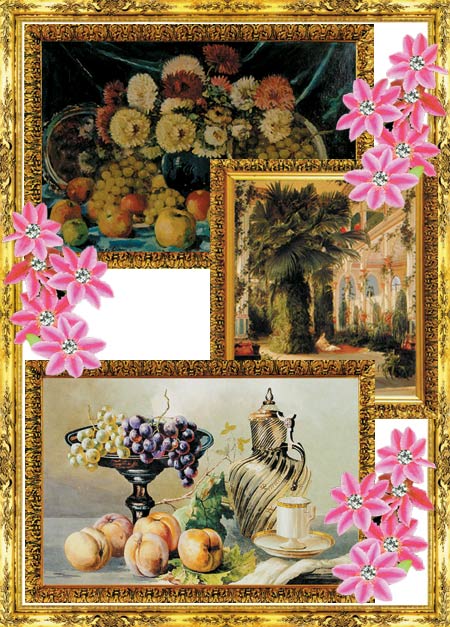 |
Above: A still-life painting by Ibrahim Safi, 1898-1983 Right: Carl Blechen, Interior of a Palm House, 1834 Below: A still-life painting by Kadri Aytolon, 1873-1957 |
Many verses mention that Saba had a strong army. We are told that its commanders left the final decision to the queen, as the following verse indicates:
"We possess strength and great force. But the matter is in your hands, so consider what you command." (Qur'an, 27:33)
But Saba's strong army turned out to be of no use, for despite the prophet's warnings, the Sabaeans's continued ungratefulness for God's blessings caused them to be punished generations later with a disastrous flood. The Qur'an describes the places in which the Sabaeans lived:
There was also a sign for Saba in their dwelling place: two gardens—one to the right and one to the left. [We said to them:] "Eat of your Lord's provision and give thanks to Him: a bountiful land and a forgiving Lord." (Qur'an, 34:15)
The Sabaeans lived in a land of striking beauty and of fruitful vines and gardens. Located on trade roads, they lived lives of considerable comfort and had built one of the finest cities of that time. Given their high standard of living and beautiful environment, it was their duty to eat of their Lord's provision and give thanks to Him.
But they did not do this, for they were ungrateful:
But they turned away. So, We unleashed against them the flood from the great dam and exchanged their two gardens for two others containing bitter-tasting plants, tamarisk, and a few lote trees. That is how We repaid them for their ingratitude. Are any but the ungrateful repaid like this? (Qur'an, 34:16-17)
The Sabaeans thought that their success and wealth came from their own effort. As these verses say, God willed His retribution, in the form of a great flood, to fall upon them and destroy them. Those who are ungrateful for God's blessings, who do not follow the way shown by the prophets, and who ignore the revealed Books that He has sent down will receive their reward for their actions both in this world and in the world to come.
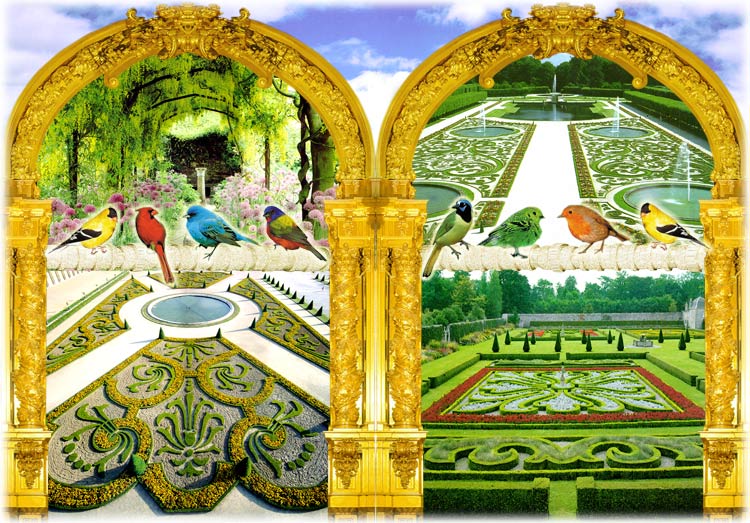 |
He produces gardens,both cultivated and wild, and palm-trees and crops of diverse kinds,and olives and pomegranates,both similar and dissimilar. (Qur'an,6:141) [He will]grant you gardens and waterways.(Qur'an,71:12) [He] supplied you with livestock, children gardens, and clear springs.(Qur'an,26:133-134) [They are]rejoicing in blessing and favor from God, and that God does not let the wage of the believers go to waste.(Qur'an,3:171) |
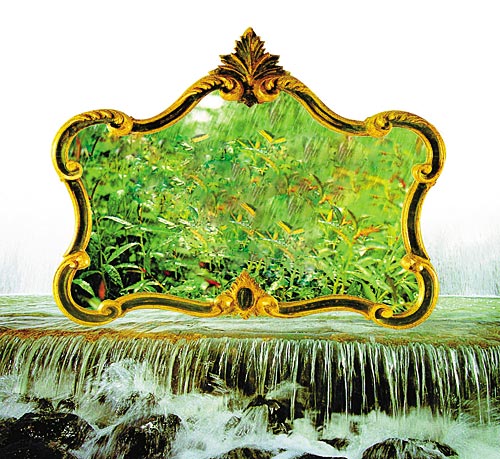 |
Tell My servants that Iam the Ever-Forgiving, the Most Merciful.(Qur'an,15:49) This is God's law, for He decrees: That is some of the news of the cities that We relate to you. Some of them are still standing, while others are now just stubble. We did not wrong them; rather, they wronged themselves. The deities they called upon besides God did not help them at all when God's command came upon them. They did nothing but increase their ruin. (Qur'an, 11: 100-101) |
 | 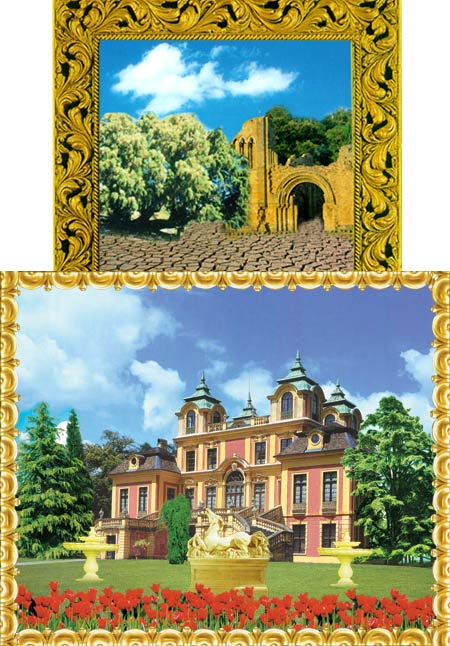 |
Left: The tamarisk tree has salty leaves and draws a lot of water. By using all sources of moisture and water, it increases the danger of fires and floods. A large tamarisk tree can draw up to 1,000 liters of water a day and thus ruin the area's ecological balance. Below: Cedar trees, which produce durable and fragrant wood, are used to construct the outer covering of buildings, make furniture, and carve various objects. So a visitation from your Lord came upon it while they slept, and in the morning it was like burnt land stripped bare. (Qur'an, 68:19-20) | |
Saba Destroyed by the 'Arim Flood
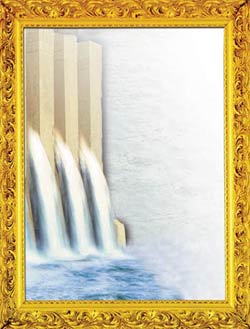 |
According to historical sources, Saba was one of the four great civilizations of southern Arabia. Its inhabitants were a sophisticated people who had reached a high level of technology, as we can tell from the Ma'rib dam, one of their most important achievements. As the Sabaeans were establishing their civilization, they built this dam and began to irrigate the surrounding land, and develop a very comfortable lifestyle.
The Ma'rib dam was 16 meters (52 feet) high, 60 meters (196 feet) wide, and 620 meters (2,034 feet) in length. Scholars estimate that it irrigated 9,600 hectares of land: 5,300 hectares on the southern plain and 4,300 hectares on the northern plain. Sabaean inscriptions sometimes refer to these two plains as "Ma'rib and the two plains."11 So, the Qur'anic expression of "two gardens—one to the right and one to the left" probably means these vines and gardens that stretched across two valleys. This dam, as well as the irrigation water it supplied to the surrounding land, made the area famous as the best irrigated and most productive land in southern Arabia.
The extensive repairs made during the fifth and sixth centuries CE did not prevent its collapse in 542. The ensuing flood, which the Qur'an calls the Arim flood, destroyed the Sabaeans' vineyards, gardens, and farms that they had cultivated for centuries.The Saba kingdom then entered a period of rapid decline and gradually disappeared.
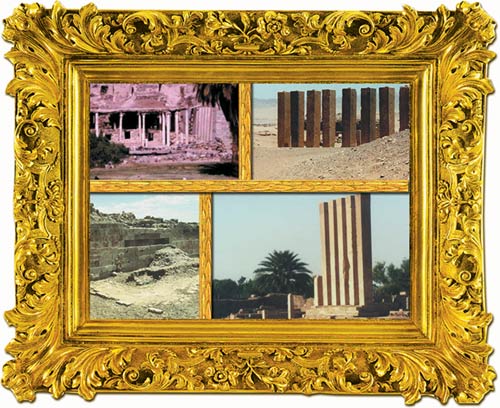 |
The 'Arim flood, which followed the Ma'rib dam's collapse, covered Saba with water and destroyed the city. |
Archeological finds and historical sources corroborate this event. The Qur'an speaks of the Sayl al-'Arim (i.e., the 'Arim flood). The word 'arim can mean dam or barricade. So, Sayl al-'Arim indicates that the flood happened because the dam collapsed.
German archeologist Werner Keller, author of Und die Bible Hat Doch Recht (The Holy Book Was Right), accepted the Qur'anic account of this flood and wrote that the existence of such a dam and the destruction of the whole kingdom by its collapse proves that the Qur'an's example of the people of the garden was indeed realized. 12
The Ma'rib dam, which now has become a desolate ruin, is a lesson for all people who, like the Sabaeans, are ungrateful for God's blessings and so deserve His punishment. In a moment, all of their wealth was gone. (For a detailed discussion, see Harun Yahya, The Perished Nations [Ta Ha Publishers, Ltd.: 2002].)
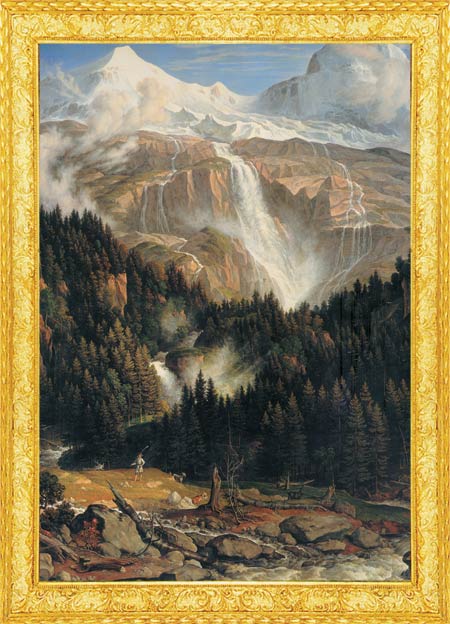 |
Joseph Anton Koch, The Schmadribach Falls, 1821-22 |
And [We] made Earth burst forth with gushing springs. And the waters met together in a way that was decreed. (Qur'an, 54:12) |
- Introduction
- Prophet Solomon (pbuh)
- Prophet Solomons (pbuh) Superior Knowledge and Blessing
- Prophet Solomons (pbuh) Mighty Kingdom and Powerful Army
- Prophet Solomons (pbuh) Superior Moral Character
- Harut and Marut
- Prophet Solomon (pbuh) and The Queen of Saba
- Prophet Solomons (pbuh) Death
- The Jinns and Animals Under Prophet Solomons (pbuh) Command
- Similarites Between Prophet Solomon (pbuh) and Dhu'l-Qarnayn (pbuh)
- Two Administrations Described in The Qur'an
- The End of Saba
- Prophet Solomon (pbuh) in The Old Testament
- Similarities Among Prophet Solomon (pbuh), Dhu’l-Qarnayn (pbuh), and The Mahdi
- Conclusion
- The Jinns in The Qur’an
- Satan
- The Deception of Evolution
